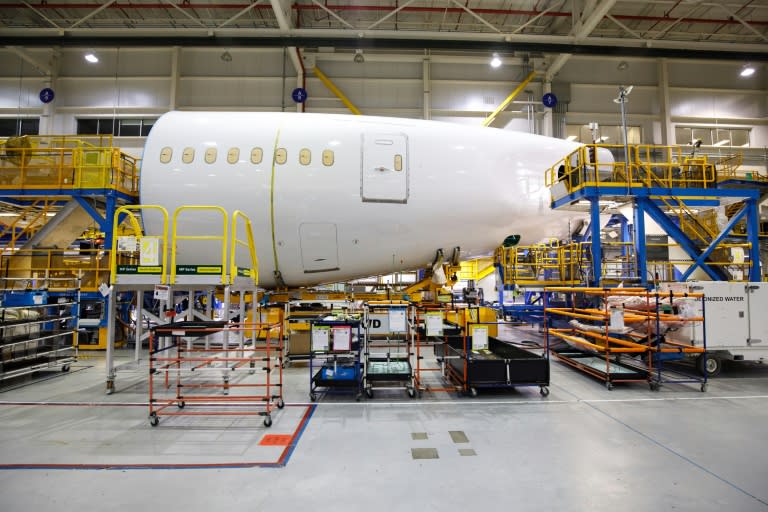Going 'backwards'? Whistleblowers slam Boeing safety culture

Witnesses at a US Senate hearing on Boeing drew a disturbing picture Wednesday of an aviation giant that blows off safety questions and sidelines critics as it chases faster production and bigger profits.
"The attitude from Boeing from the highest level is just to push the defective parts, regardless of what it is," Boeing engineer Sam Salehpour told lawmakers on Capitol Hill.
Salehpour, who has worked at Boeing for 17 of his 40 years in aerospace, said he became a whistleblower after he was punished for raising safety questions about the top-selling 787 Dreamliner and 777.
He testified that he was blackballed by company higher-ups and feared for his personal well-being after raising concerns about safety.
He maintains that the Dreamliner could show premature signs of fatigue, resulting in a catastrophic accident because of excessively large gaps in the plane's assembly. He likened it to a paper clip that is bent repeatedly.
"You do it once or twice, it doesn't break, but it breaks at some time," said Salehpour, who has said the entire 787 fleet should be grounded for investigation.
Boeing acknowledged imperfections, but said it was making progress.
"We know we have more work to do and we are taking action across our company," the company said after the hearing, pointing to an uptick in its "Speak Up" portal to field employee input.
Boeing has pushed back against Salehpour's allegations about the 787, pointing to extensive testing that shows no signs of fatigue.
It also said that it had addressed the gap issue during a period when it slowed production and suspended deliveries -- a process tightly overseen by the Federal Aviation Administration.
The FAA said in response to Salehpour's claims that the 787s currently flying are in compliance.
The aircraft also received an endorsement Wednesday from United Airlines Chief Executive Scott Kirby, who told CNBC he was "totally confident the 787 is a safe airplane."
Lawmakers expressed alarm at testimony about alleged widespread manufacturing and quality control problems throughout Boeing's fleet, as well as the overly deferential approach of the FAA, which one witness described as "captive" to Boeing.
"This requires a full-blown investigation," said Republican Senator Ron Johnson of Wisconsin, calling for future hearings to hear from pilots, the airlines and other witnesses.
Senator Richard Blumenthal of Connecticut, who chaired the hearing, said representatives of Boeing and the FAA were already scheduled to appear.
- Going backwards? -
The hearing comes as regulators escalate scrutiny of Boeing in the wake of a near-disastrous January 5 Alaska Airlines flight, in which a 737 MAX was forced to make an emergency landing after a fuselage panel blew out in mid-flight.
The incident revived major questions around Boeing's safety practices that had initially arisen following two fatal crashes in 2018 and 2019, but which had subsided following a lengthy grounding of the 737 MAX.
In late March, Boeing announced a leadership shakeup that included the retirement of Chief Executive Dave Calhoun at the end of 2024 and the replacement of Chair Larry Kellner with former Qualcomm CEO Steve Mollenkopf.
In a recent message to shareholders, Mollenkopf pledged to "take the necessary steps to regain the trust lost in recent times."
"Boeing must commit to real and profound improvements and we will hold them accountable every step of the way," the FAA said in a statement, reiterating the need for aviation employees to be able to speak up without fear of reprisal.
The agency also pointed to a recent audit by an FAA advisory panel that found employee skepticism that safety complaints by workers would not result in retaliation.
Former pilot Shawn Pruchnicki, now at Ohio State University, said a reporting culture was critical to improved safety, along with a chain of accountability all the way up to the CEO.
Pruchnicki said despite promises he called "hollow," there was no sign Boeing has reformed itself.
"So it leaves one to wonder, have we gone backwards?" he asked.
jmb/sst


